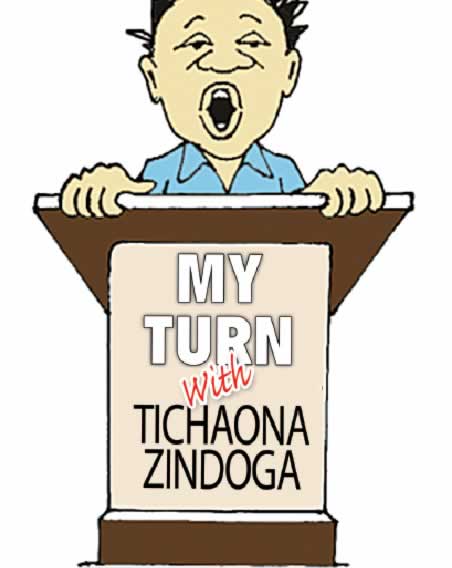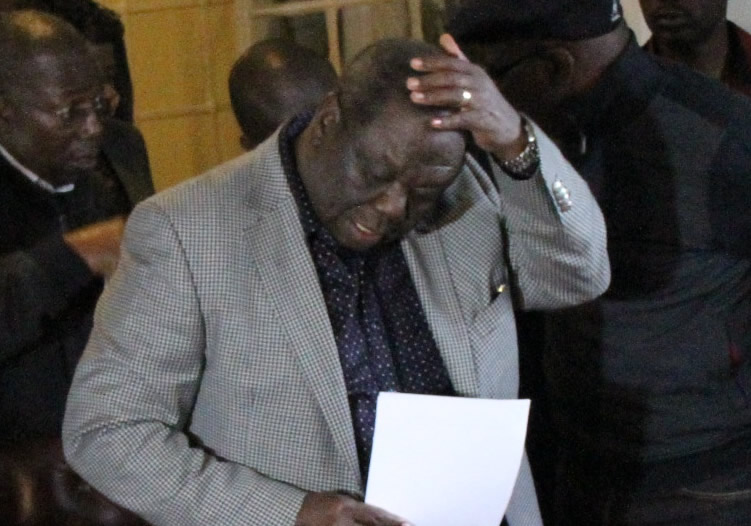Bad boy Israel, we are watching you!

 Social media, you double-edged sword! You beauty! Time was when we thought social media was a tool only for the oppressed people fighting tyrannical regimes from Iran to North Africa to Venezuela to, excuse me, Zimbabwe! Western media and governments would encourage the use of these new media to foment and precipitate; conduct and co-ordinate people rising against “regimes” and foul fellows such as Hugo Chavez, Mahmoud Ahmadinejad, Ben Ali and Hosni Mubarak.
Social media, you double-edged sword! You beauty! Time was when we thought social media was a tool only for the oppressed people fighting tyrannical regimes from Iran to North Africa to Venezuela to, excuse me, Zimbabwe! Western media and governments would encourage the use of these new media to foment and precipitate; conduct and co-ordinate people rising against “regimes” and foul fellows such as Hugo Chavez, Mahmoud Ahmadinejad, Ben Ali and Hosni Mubarak.
Thus we had the “Facebook Revolution” in North Africa, a phenomenon that has since attracted scholarly attention with a body of literature now available on the impact of these media on society, democracy and politics.
In “Internet Freedom: A Foreign Policy Imperative in the Digital Age”, Richard Fontaine and Will Rogers tell us that,
“From Egypt to Tunisia to Iran, the world has borne witness to the power of the Internet and new digital tools used to communicate across borders, organise protests, topple some dictators and possibly strengthen others — actions that all affect US foreign policy. This report examines Internet freedom through the lens of American foreign policy and explores two central questions: What does access to an open Internet mean for US foreign policy, and what should the United States do about it?”
(Please note the self-righteous Western language and how the academics saw the US as owning the tool of the Internet.)
The Oxford Analytica Daily Brief Service on February 9, 2011 stated: “(The) use of social media in Tunisia and Egypt has highlighted their importance as tools for circumventing government dominance of the media sector and restrictive freedom of association laws. The ability of protestors to communicate and mobilise via social media raises questions as to whether such tools have brought about a permanent shift in the balance of power away from authoritarian governments.”
Well, the focus of social media these days is not trained on the usual bad guys in the developing world but firmly on Israel and the US.
By the way Israel and the United States of America are the biggest rogue and terrorist states in the world, judging by the way they behave: the US throughout much of its history that began well as a people yearning for freedom and democracy but quickly turned to massacring indigenous peoples it found where it is today; to date when it is fomenting and sponsoring phony wars; Israel, a group of scattered people who found a home and but now an apartheid and terrorist state.
Rogue Israel gets the support of the US, which has vetoed every UN resolution seeking to end Israeli terror in the Arab world since 1972.
For a long time, Western media fed the world toxic propaganda on issues such as Israeli aggression in the Middle East.
World audiences, apart from Americans who have a dubious distinction of being the most gullible, were bombarded with one-sided “news”, which they could not help or contest.
The world has changed, and thanks to the useful social media which has not only been used to expose the excesses of US-backed Israel but also question the very propaganda that is spewed by the mainstream media.
When in December 2012 Israel began its routine excesses against the long-suffering people of Palestine, little did it know that the game had changed.
There was another aspect of the war: social media.
Here is what Ariel Peled wrote for the Guardian, then: “Unlike any other war in the past, the Israeli-Gaza conflict has been characterised by the mass virtual participation of ordinary people via social media.
“Civilians from both sides of the conflict and interested citizens worldwide shared news reports, blogs, stories, links, pictures and videos that supported their point of view or refuted others’ claims or mainstream media reports. Beyond the physical war, a high-intensity virtual war on the hearts and minds of all netizens was being waged.
“This is the first time that the power of the masses has influenced the mainstream media’s reporting to such a degree. The New York Times, CNN, AP, the Guardian, The Telegraph and many others that began reporting using a traditional approach were overwhelmed by public demands for a fuller picture and eventually decided to post reports and opinions on the narrative from both sides, as well as third parties.”
On the latest round of bombardments, Al Jazeera has seen what it calls, a “War of the hashtags”.
Explaining: “For generations, propaganda has always unfolded alongside warfare; but conflicts now are coming under increased scrutiny through social media. An information war is being waged online by journalists, by individuals and by the Israeli and Hamas media machines.”
And Al Jazeera goes on to cite the most important part.
“The hashtag #GazaUnderAttack has been used in more than 4 million Twitter posts, compared to the nearly 200 000 for #IsraelUnderFire.”
For the first time Israel is losing the war against Palestine and it has nothing to do with the superiority of weaponry, which Israel is deploying intemperately and disproportionately against the people of Palestine mostly killing civilians and targeting kindergartens, schools, hospitals and other social infrastructure.
Israel says bombing civilians in this way is a means to protect itself.
It blames Hamas militants for using civilians as human shields and particularly for not having erected missile shields.
Israeli Prime Minister Benjamin Netanyahu recently accused Palestinians of parading “telegenic dead” by which he meant that Palestine was parading dead bodies because it made good TV images.
No one is buying that, though.
The world is wiser and has passed its verdict.
People are challenging the narrative of the US-backed aggressor, Israel and for the first time even more and more celebrities are using the social media to refute and register disgust at Israel.
That is, risking a backlash – which has seen a couple of them, like Rihanna, back down after posting #FreePalestine.
Selena Gomez, a sweet, 22-year-old actress and singer posted on Instagram that: “It’s about humanity. Pray for Gaza.”
According to one source, a firestorm erupted around her, with celebrity news site TMZ asking whether Gomez was “pro-Hamas” to which she followed up by posting, “And of course to be clear, I am not picking any sides. I am praying for peace and humanity for all!”
Rob Schneider, a movie star and comedian has condemned the attacks and said on Twitter: “To not be outraged at the killing of children is to risk your very soul. #Gaza.”
After facing some backlash for an initial post criticising the destruction of El-Wafa Hospital by Israeli missiles, actor Mark Ruffalo, sunk it deeper by stating: “Sorry, I thought blowing up hospitals was something that all human beings could agree was off limits.”
More and more celebrities and ordinary people have taken ownership of the current affairs narrative through the power of social media.
Thank God for social media.
Never again shall the world be force-fed what it does not like, whether by dictators or by super democrats like the US and its allies like Israel.
They may continue to give the world the middle finger, as Israel is wont to do, but the emperor is well and truly shorn of clothes.
And, US-backed Israel, we are watching you!







Comments